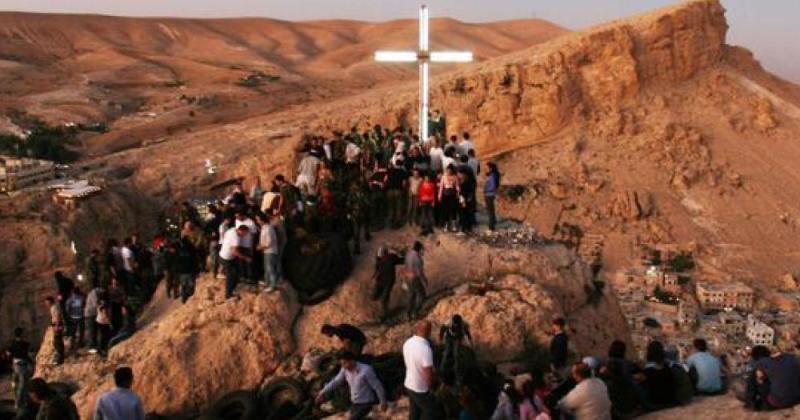As the holiday season approaches, particularly Christmas, conversations in social circles often take on a near-pessimistic tone concerning the future of the Christian presence in the Middle East. The signs of decline have become increasingly apparent, a reality that does not bode well, unless communities recognize the gravity of this rapid depletion and act accordingly.
Optimists argue that Christian presence is neither inevitable nor irreversible. With proper planning and swift action, this decline can be addressed.
Historically, Christianity originated in the Middle East, specifically in Palestine—in Bethlehem and then Jerusalem—before spreading swiftly to Egypt, Northern Africa, Syria, Asia, Cyprus, Greece, Italy, and Europe. This presence profoundly influenced civilizations in various domains, leaving a mark on art, language, politics, law, family life, music, and education. Many schools and universities worldwide were founded by the Church, fostering advancements in numerous scientific fields.
Christianity’s contributions to Western civilization are undeniable, having shaped the way of life and thought in the West for nearly two millennia.
In our region, Arab Christians have played a pivotal role in many fields, particularly during the Arab Renaissance and the Great Arab Revolt. As highlighted in Fortress of Peace: The Jordanian Model of Interfaith Dialogue and Shared Living by the author of these lines, the book states: “Arab Christian figures had a significant influence on the intellectual renaissance... and the development of the Arabic language, including notable individuals such as Iskandar Ammon, George Haddad, Awda Qussous, Najib Azar, Youssef Al-Hayek, and George Antonius, who met with Sharif Hussein Ibn Ali in his exile in Cyprus… They played a substantial role in shaping the nation’s foundations from 1921 onward.”
As His Majesty King Abdullah II emphasized during the 2013 conference The Challenges Facing Arab Christians: “We also believe that the protection of the rights of Christians is a duty rather than a favor. Arab Christians have played a key role in building Arab societies, and defending the just cause of our nation.”
His Majesty has consistently reaffirmed that protecting Christians’ holy sites is part and parcel of protecting Christians.
In a speech before the U.S. Congress, King Abdullah warned: “Churches remain in Jerusalem, but the number of worshippers has dwindled to only a few thousand. Do we want empty churches? This is unacceptable for us in Jordan.”
Today, the Christian presence in the Arab world is undeniably in decline. The consequences of this evacuation are dire and increasingly evident. Churches are losing their congregations due to migration, driven by a variety of factors including persecution, restrictions—especially in Palestine—and prolonged regional instability. Over the past decade, countries like Iraq, Syria, Palestine, Egypt, Lebanon, have witnessed continuous emigration.
In Jordan, the land of peace and harmony living, emigration persists, often propelled by economic challenges as individuals seek better opportunities in the face of mounting living costs. Recently, another factor has emerged, namely the search for a peaceful life away from the political tensions and instability engulfing the region.
In essence, Christian presence has always been a dynamic and positive force within our societies. Its absence would leave a harsh void, with profound cultural, social, and political repercussions. The loss of this presence disrupts the delicate religious balance that has long characterized our region, paving the way for sectarian divisions and conflict to replace dialogue and understanding—the cornerstone of stability.
This raises a critical question, namely who benefits from this evacuation, and to whose advantage?
We must acknowledge the grave consequences of the disappearance of the Christian presence that has defined the Middle East, and act collectively as individuals and communities to implement a scientific, actionable plan to preserve what remains of the "salt of the Earth." This includes the importance of ongoing dialogues' workshops and seminars that promote understanding and harmony, initiating projects that create job opportunities to limit migration, and adopting other solutions rooted in the steadfast belief that diversity is a source of strength.
